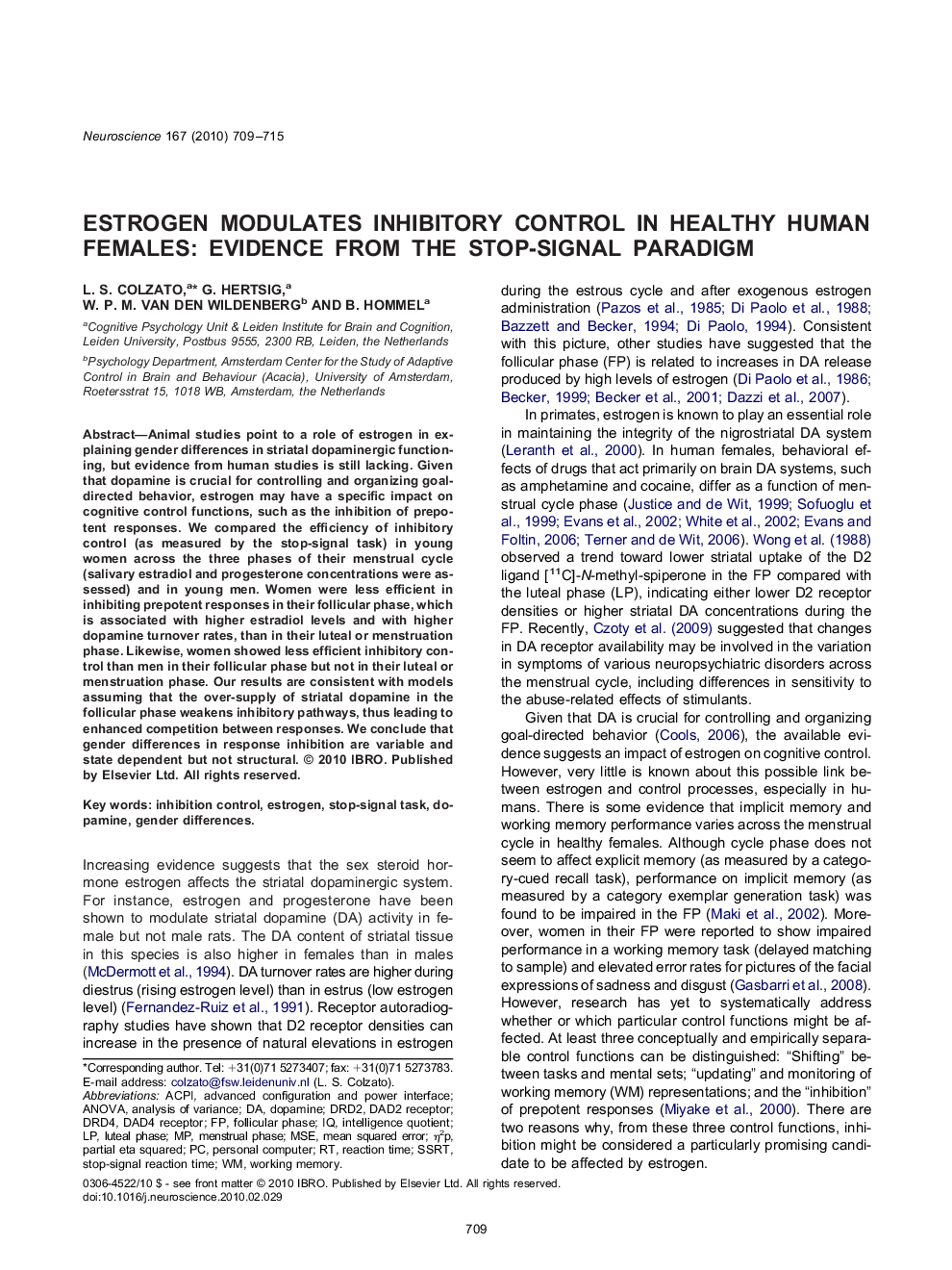| Article ID | Journal | Published Year | Pages | File Type |
|---|---|---|---|---|
| 4339620 | Neuroscience | 2010 | 7 Pages |
Abstract
Animal studies point to a role of estrogen in explaining gender differences in striatal dopaminergic functioning, but evidence from human studies is still lacking. Given that dopamine is crucial for controlling and organizing goal-directed behavior, estrogen may have a specific impact on cognitive control functions, such as the inhibition of prepotent responses. We compared the efficiency of inhibitory control (as measured by the stop-signal task) in young women across the three phases of their menstrual cycle (salivary estradiol and progesterone concentrations were assessed) and in young men. Women were less efficient in inhibiting prepotent responses in their follicular phase, which is associated with higher estradiol levels and with higher dopamine turnover rates, than in their luteal or menstruation phase. Likewise, women showed less efficient inhibitory control than men in their follicular phase but not in their luteal or menstruation phase. Our results are consistent with models assuming that the over-supply of striatal dopamine in the follicular phase weakens inhibitory pathways, thus leading to enhanced competition between responses. We conclude that gender differences in response inhibition are variable and state dependent but not structural.
Keywords
Related Topics
Life Sciences
Neuroscience
Neuroscience (General)
Authors
L.S. Colzato, G. Hertsig, W.P.M. van den Wildenberg, B. Hommel,
